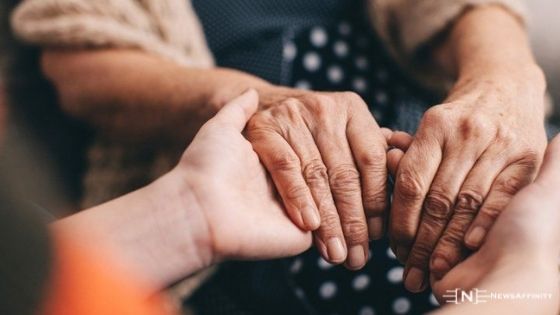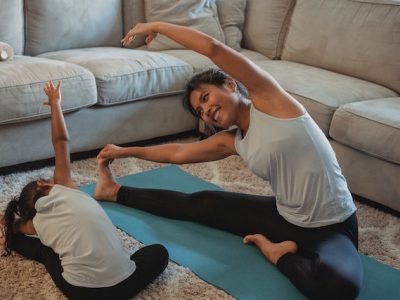The average life expectancy in the US is currently about 78 years old, and as such many of us can expect our parents to live to an older age than previous generations did. This is good news for everyone, as we get to spend more time with our loved ones and they get to enjoy a long and happy retirement. On the other hand, this longer life expectancy brings with it certain new challenges, both when it comes to caring for an aging population on a societal level and personally looking after our own elderly relatives.
We want our parents to be able to live healthily and independently for as long as possible. That’s why it can come as a bit of a shock when we realize that, having cared for us for so long when we were children, our mom or dad now needs us to care for them. Moreover, it is not always obvious to us how we can best support them, or what type of assistance they require. To make the task easier, here are some suggestions for different ways that you can help your elderly parents out.
Thinking about assisted living
Before looking at how you can help your parents in their own home, it’s important to cover the topic of assisted living. For many people, there will come a point when they are no longer able to live independently, and instead require the kind of dedicated support that you get in a care home. If you’re concerned that this time has arrived for your mom or dad, have an open and honest discussion about it you know how each other feel.
It’s a good idea to visit some residential care facilities for the elderly (RCFE) together, so that you can both get a better idea of what it’s like to live there. When choosing a care home, be sure to check what services they have available – not only in terms of medical support but also social activities and similar programs – and that they have valid RCFE administrator certification. Ask the staff any questions you may have, and perhaps even see if you can talk to some of the residents.
Take your time so that the decision to move your parent into assisted living doesn’t feel rushed, and keep them involved every step of the way. Communication is critical in situations such as this, and will help ensure that you maintain a good family relationship.
Making adjustments at home
There are a number of alterations you can make to a property that will help your mom or dad to keep living in their own home for as long as possible. Some of the most common of these include installing hand rails in the bathtub, putting a seat in the shower, and getting a stairlift fitted. Other options range from having nightlights to make it easier to navigate safely in the dark and power-assisted rising chairs to help older people sit down and stand up more easily, to replacing twist taps with lever ones for ease of use. Even simple steps such as decluttering the house and moving items to lower shelves within cupboards can make a big difference. Another reassuring idea is to purchase an emergency button that your mom or dad can wear around their neck, enabling them to call for help if they have a fall.
Encouraging healthy eating
Good nutrition is important at any age, but especially as we get older. Seniors often don’t have the same calorie requirements as younger people, which can make it more difficult to ensure they’re getting all the vitamins and minerals that their body needs. Try to encourage your parents to eat plenty of fresh fruit and vegetables, while avoiding sugary drinks and snacks. It’s also key that they don’t consume too much salt, as this can cause high blood pressure and heart disease. You could accompany your mom or dad on their weekly shop, bring some homemade dishes over to them, or cook together at their place. Home delivery services are also available for those who prefer not to make meals themselves.
Keeping physically active
Taking regular exercise is key for our health, no matter how old we are. In terms of elderly people in particular, physical activity is important for increasing strength and balance, thereby reducing the likelihood of a fall. It can also lower the risk of health conditions such as obesity, diabetes and stroke, as well as boost mood and mental wellbeing. Of course, this doesn’t mean that your parents need to be hitting the gym or going running! Instead, try encouraging them to take up an active hobby such as gardening or swimming. There are even a number of fitness classes designed especially for older people. These have an added social component that makes them even more beneficial. Another great option is to simply take regular walks to enjoy the fresh air, sunshine, and natural scenery.
Staying mentally active
Keeping our brains active is just as important as keeping our bodies active. Luckily there are lots of different ways your parents can do this, depending on the kind of activities they enjoy. For instance, they could have a go at special brain training games and puzzles, do the daily crossword in the newspaper, visit art galleries and museums, or read widely about new topics. For something a little more intensive, your mom or dad might enjoy learning a new language or playing a musical instrument. All of these can be effective methods of boosting concentration and attention span, as well as staving off memory loss and other forms of cognitive decline.

















Comments